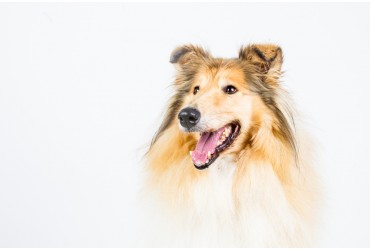Foods for Dogs - Facts & Myths
To understand what dogs should eat, we must first understand where they came from and what they are at their most basic level. Your dog's relatives are the key to this nutritional puzzle. The wolf is a carnivore that hunts and scavenges for food. While their diet may vary, the one constant is that it is primarily meat based. If you understand how the wolf evolved to the domestic dog, your knowledge of the canine species improves. Canine domestication is a major piece of the puzzle of why so many well-ntentioned canine caregivers go awry with nutrition.
Raw Meat:
Just like their wolf ancestors, the modern dog's teeth, jaw and digestive system are specifically designed to eat meat and bones. Tellingly, dogs do not produce the enzymes necessary to digest starches, which begins in the mouth.A dog's digestive system is designed in a way that facilitates the digestion of meat, bones and fat, while also eliminating harmful bacteria. This is why dogs can eat raw, rancid meat and drink out of gutters without getting sick, but we cannot.
Not only is raw meat biologically safe and appropriate for your furry friend, it is also full of valuable protein, vitamins, minerals and enzymes. The high moisture content helps to keep your dog hydrated and facilitate digestion.
Raw Bones:
So it may surprise you to learn that wolves do not have toothbrushes. Shocking, I know. How on earth did dogs keep their teeth clean before the invention of denta bones and canine dentistry in all its myriad forms? A veritable mystery. Well, not really. They did it by eating bones, or as we like to call them, nature's toothbrush.Edible raw bones are a healthy addition and staple to any raw diet. They fulfill important calcium requirements, clean teeth and help to form those perfect raw fed poops you've most likely heard about.
Always provide supervision when feeding bones and never give bare bones. Serve bones that are covered in plenty of meat. It's also important to look out for fast eaters. They need to understand how to properly eat raw meaty bones.
Another option, if you're lucky enough to own a meat grinder, is to grind up meat and bones into a nice ground mixture.
Garlic:
Garlic is the most controversial here, and that controversy is not entirely without merit. Garlic gets a bad rap because it contains trace amounts of thiosulphate, which can damage red blood cells, liver and cause other more serious health issues. However, a healthy dog would likely need to consume large quantities of garlics to experience such problems. In small therapeutic doses garlic has antibacterial, antifungal and antiparasitic properties, while also making your dog less desirable to fleas. It also boosts the immune system and is a natural antibiotic that doesn't disturb the delicate, beneficial bacteria in the gut, which is key for digestion and immunity.If garlic makes you nervous, feel free to avoid it. Though it's generally safe for dogs to eat clove per 10 pounds of body weight each day.
Raw Eggs:
Eggs are a near perfect food for dogs owing to the fact that they contain all ten of the essential minerals dogs require and a host of other nutrients, including vitamins A, D3, E, B2, B3, B5, B6, B12, K, iodine, choline, calcium, biotin, potassium, sulphur, folic acid, phosphorus, iron, selenium and zinc.The next time you're in the kitchen whipping up a dish, crack open an extra egg for your dog to enjoy! : )
Tags: Dog Foods, Food Allergies



